I walked into my friend Bianca’s back garden yesterday afternoon to find her mother Astrid fiddling with her smartphone. “Häsch hunger?” She asked almost immediately after I greeted her, repeating herself in English shortly thereafter. “You are hungry?” I nodded, even though I’d eaten a late lunch – Astrid’s hospitality is impossible to refuse. Keeping with this, she had rushed inside to fetch an apéro before I’d even sat down; she returned with a pack of tomato basil bread twists before I thought of even one item she could potentially bring out.
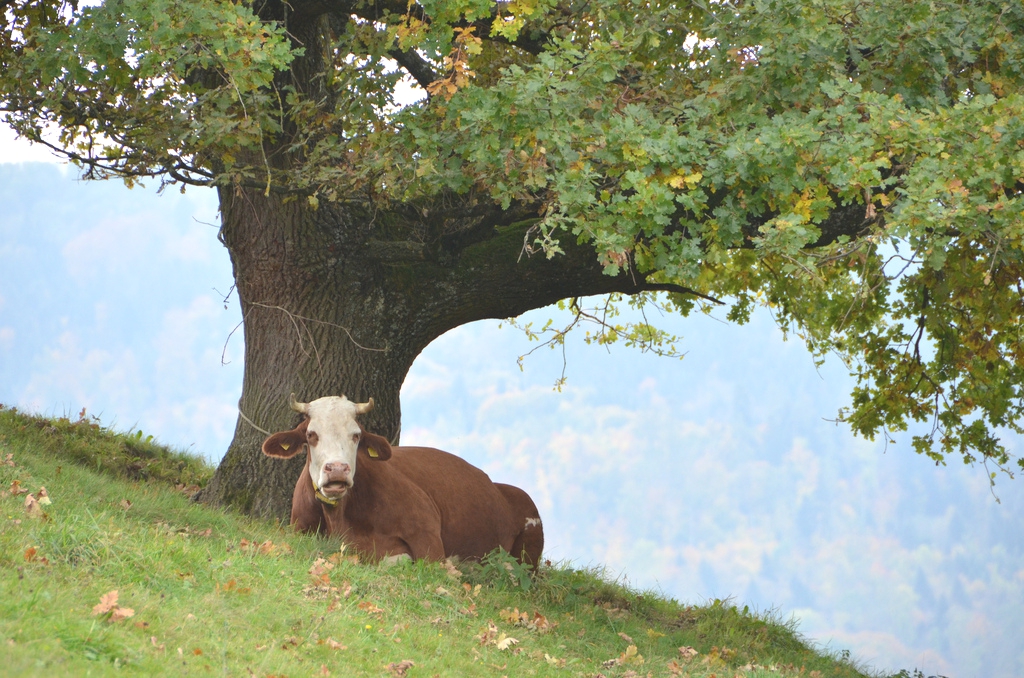
As Astrid resumed whatever it was she was trying to do with her phone, I tuned in to the profound stillness of the late afternoon. The September sun cast a decidedly soft, dim light on the cross-capped hill that rises behind the house, in spite of it being quite high in the sky as for 6:30 p.m.
Just two sounds pierced the air, which wrapped me gently in autumn’s first chill: A train speeding past in the distance; and the bells of a cow that had made its way up onto the hill. I chomped ravenously into the crispy snack stick, in spite of my usual aversion to bread-y things – it warmed me somehow.
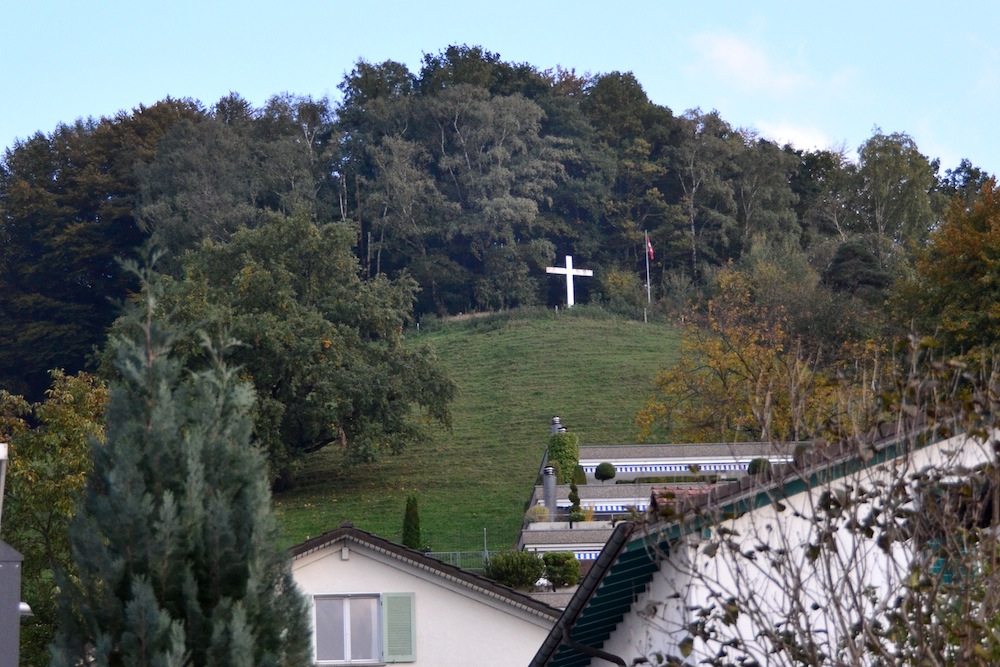
Astrid and I communicate in a blend of English and German that is sometimes awkward, but always endearing in its simplicity. It’s a mentally strenuous enough activity for the both of us that our interactions tend to be brief and sparse, even if they also tend to be lighthearted and smile-filled.
“Übersetzen,” she broke the silence, using a word I knew I’d heard but whose meaning I couldn’t remember for the life of me. “This thing in computer today morgen, to read thoughts in English,” she clarified, and handed me her phone. “You find it here?
Although I should have simply encouraged her to circumlocute her way around whatever it is she wanted to explain to me, I lazily pointed her phone’s browser to Google Translate, and handed it back to her.
I was curious as to what exactly she needed to translate this time. In the morning, for example, she had asked me when and how she was going to see the photos I’d snapped of her daughter’s wedding the day before. I imagined this time, she would need something similarly quotidian.
I paused and took a deep breath of the increasingly fresh air – her frankness had caught me off guard.
“St. Louis ist schrecklich,” I began, and then remembered that neither my German vocabulary nor Astrid’s ability to comprehend even my simplest English words would allow me to communicate – or her to understand – how St. Louis is terrible enough for me to have spent most of the past decade away from my family.
So I narrowed the focus of my argument. “In St. Louis, you must have a car,” I explained. “No S-Bahn and no buses to travel in the city. No trains to go other places in America.”
Initially, Astrid seemed pleased with my response. “That is horrible, to drive everywhere. Horrible and expensive.”
But she wouldn’t give up. “You miss your mother and your sister, yes?”
I nodded, and was thinking of a way I could explain myself simply enough to speak and to be understood. By the grace of God, she changed the subject without me having to ask.
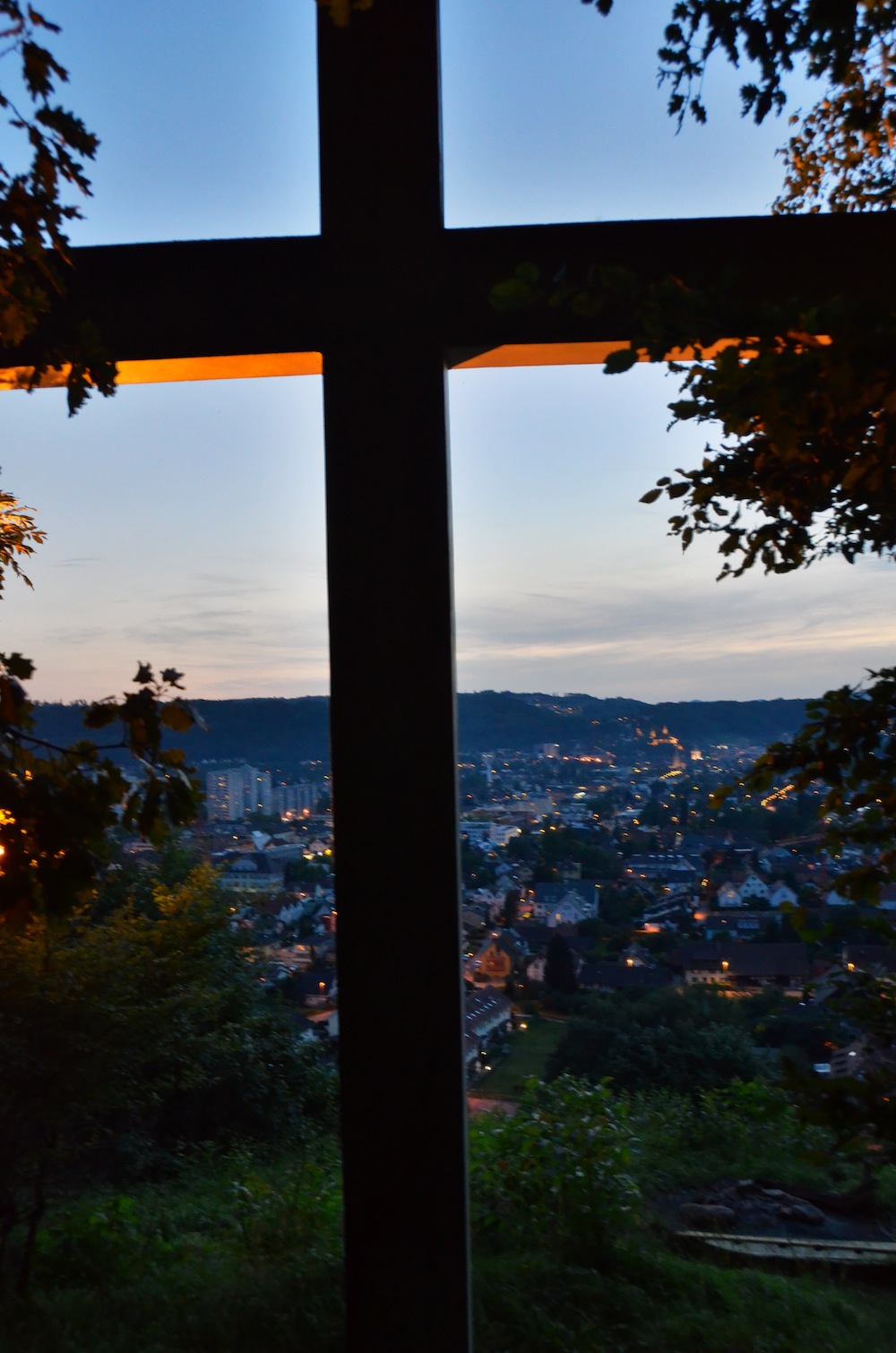
“Where will you go, after Paris?”
“I need to be in Bucharest, in Romania – Romanien – before September 18,” I explained, “but I have a rail pass so before then, I don’t know.”
Astrid smiled wide. “Das ist so geil.”
“I have some ideas,” I continued. “Maybe Prague, maybe Budapest,” I said, remembering that Astrid’s husband – Bianca’s father – is Hungarian.
“Budapest is fantastic,” she sprung up from her chair. “Wait one moment, ja?”
She returned with a large book in tow, which she opened to its first page as she sat it down in front of me. “Mine and Gabor wedding,” she said, “in Budapest, in 1983.”
Astrid went inside as soon as I began flipping through the photos – she had decided to prepare a caprese salad, which I was as impotent in my capacity to refuse as I’d been for the apéro. I was astounded by the way the photo captured the event, to the extent that they made me insecure about my own skills.
It was the first time, in more than six years of having known Bianca’s family, that I had been given so intimate a glimpse into their lives, even if I have long referred to Astrid as “meine Schweizer Mutter” and Bianca as my “Swisster.”
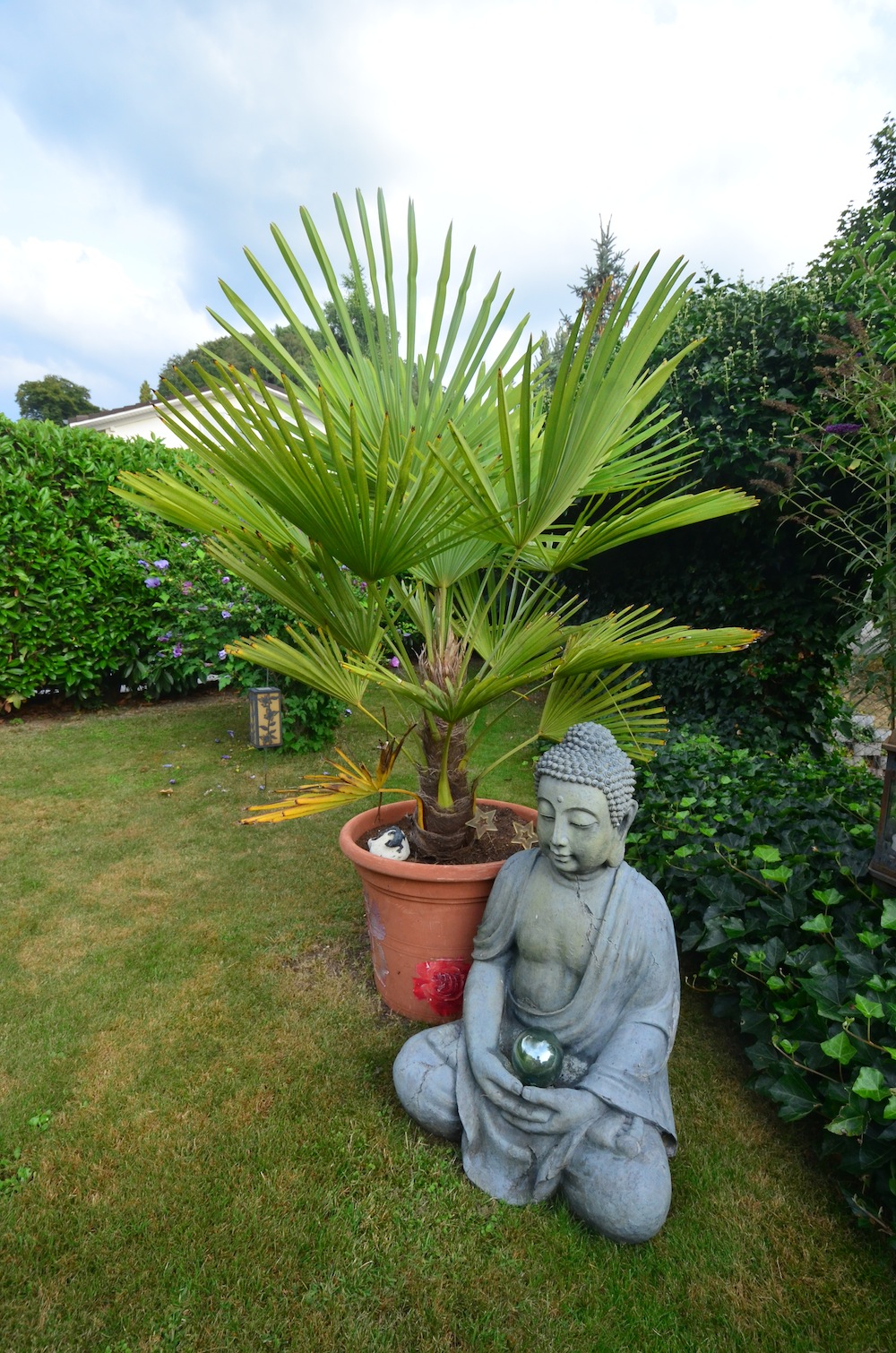
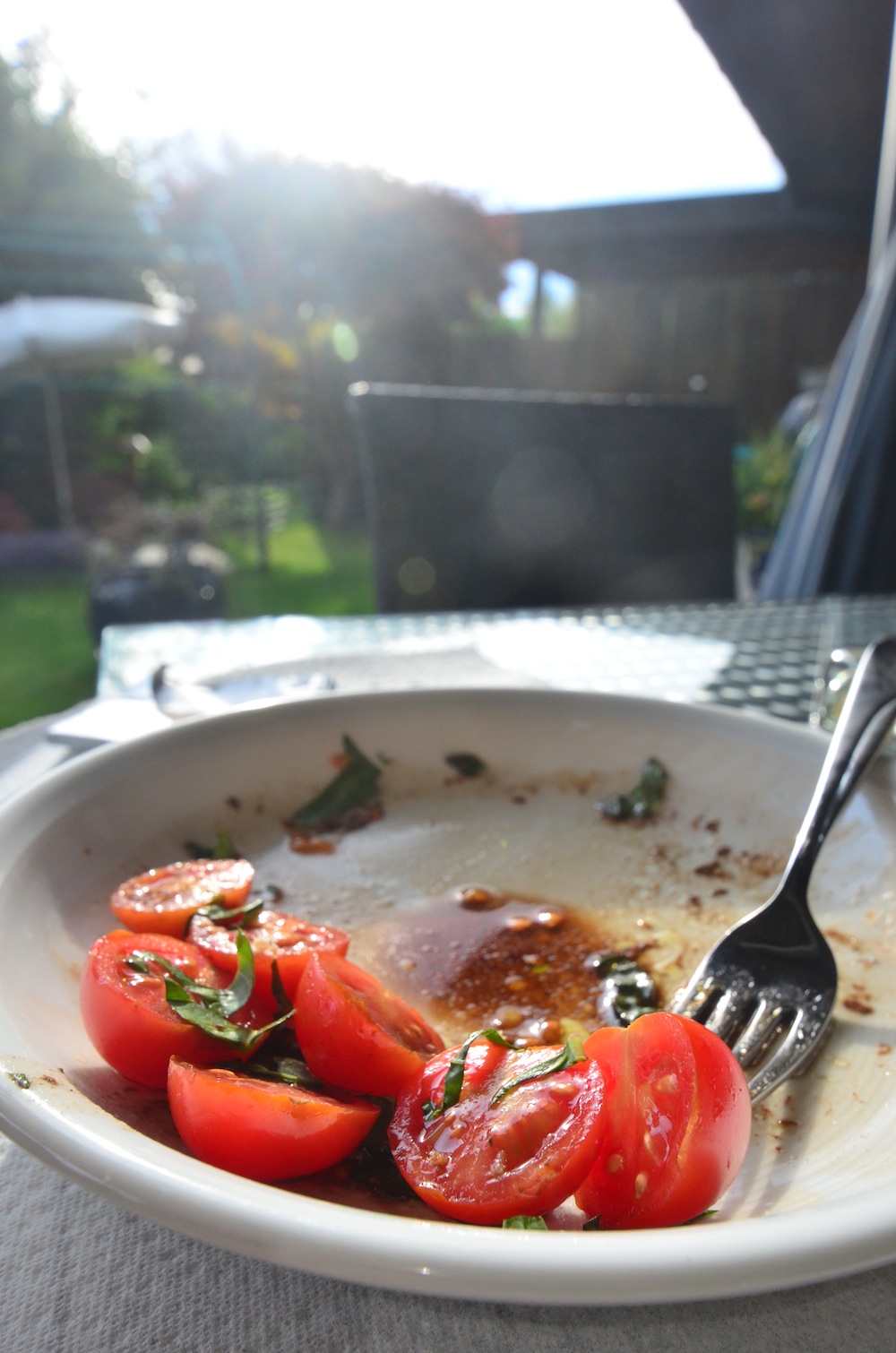
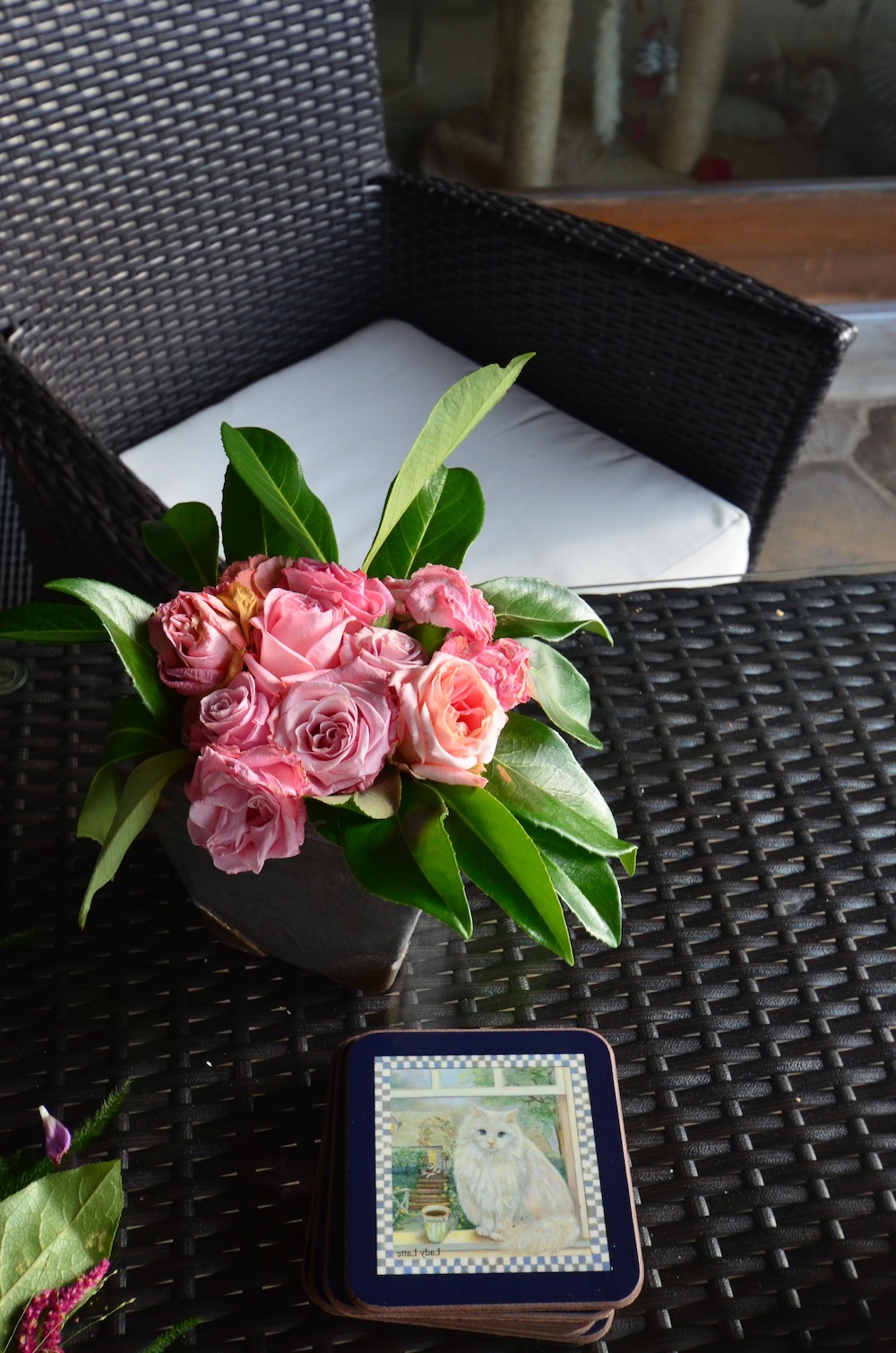
Today, I’m on a TGV (Train à Grande Vitesse, literally “high speed train” in French) headed for Paris, and only a few minutes out of the Zürich Hauptbahnhof we’ve left Wettingen, which takes 20 minutes to reach from Zürich on an ordinary S-Bahn, behind us. We moved so fast I could see neither the cross, nor the cows.
The last time I found myself onboard a Paris-bound TGV, on June 1, 2007, I was hours away from first meeting the young woman I now consider my best friend in a Montmartre café. It is only appropriate that my journey away from her at such a crossroads in both our lives is on the same sort of train.
The train is picking up ever grander vitesse as it crosses into France, and as the hills, houses and skies around me become ever more blurred, it seems more like an interstellar journey than an international one – time inside seems to be passing more slowly than outside, as it might in the depths of space.
Like an astronaut traveling through a wormhole to a distant star, I am often separate from the worlds that surround my flight path when I travel, although I’ve been made to feel at home on several, Wettingen being the most notable example, apart of course from St. Louis, where I still touch down from time to time.
And like an astronaut half-immune to the laws of physics, I find it difficult to ascertain how much time is actually passing. Emotions accumulate inside me like sand in the bottom of an eternal hourglass, but zero gravity has made me wary of a calendar that claims the year has changed only six times.
As the train gets nearer and nearer to Paris, I wonder if what awaits me there will still be in my mind when I board my third Paris-bound TGV at some point in the future. I wonder how many children Bianca will have by then, and how much or little my ability to communicate with Astrid will have improved.
I wonder if I will be the next one to get married, as Bianca predicted I would be when she threw her bouquet, whether summer will be just ending or just beginning, and if I will feel comfortable enough with the idea of Astrid as my second mother to tell her “No” when I simply don’t want to accept delicious food from her.
I wonder if I will find a way to spend more time in the horrible, car-filled city my “real” mother and sister call home. I wonder how many more lives I will have lived, and if any part of them will have taken place in Budapest. I wonder how many times the calendar will tell me the year has changed.
And I wonder how much time will have passed on Earth.
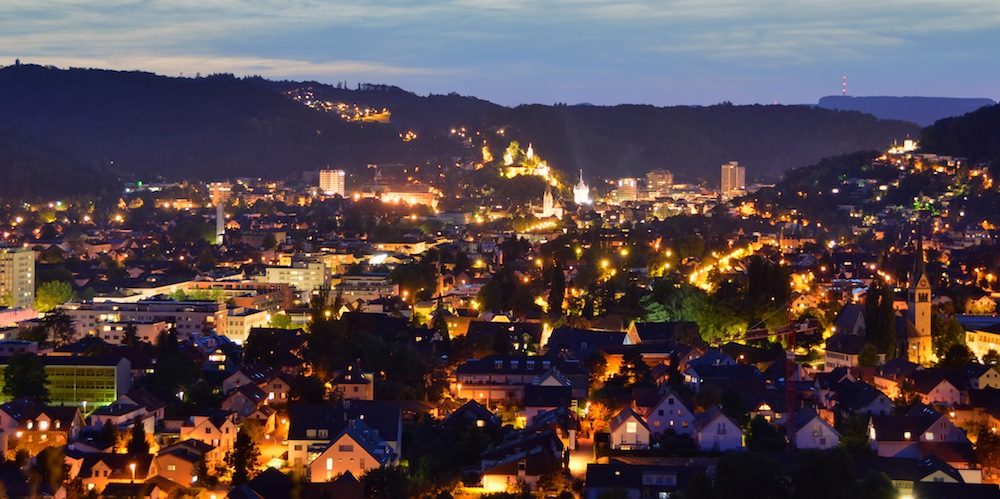

Robert Schrader is a travel writer and photographer who’s been roaming the world independently since 2005, writing for publications such as “CNNGo” and “Shanghaiist” along the way. His blog, Leave Your Daily Hell, provides a mix of travel advice, destination guides and personal essays covering the more esoteric aspects of life as a traveler.








